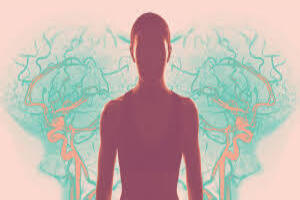
Aneurysms affect millions each year. A brain (or cerebral) aneurysm is a thin or weak spot on an artery in the brain, which can cause the vessel to bulge or balloon. The good news is that most aneurysms are treatable, using stenting, clipping, and/or endovascular coiling, a minimally invasive technique which blocks blood flow into the aneurysm. What’s more, the vast majority cause few problems. It is believed that one out of every 50 Americans has (or will have) an aneurysm, and most will never require surgery or present any symptoms.
However, all aneurysms run the risk of rupturing, which can lead to severe complications and even death. So what can you do to protect yourself and prevent aneurysms? According to the American Heart Association, you should follow these basic steps:
Control high blood pressure
Eat healthy foods
Get regular physical activity
Quit smoking
Manage stress
If you have a familial history of aneurysms, you should also be screened on a regular basis—though, according to the Brain Aneurysm Foundation, aneurysms are only considered hereditary if two or more first-degree family members have them.
That said, even the best tests have faults and flaws. My father was screened less than a year before his death. He was given a clean bill of health. My aunt, the woman who had six surgically repaired aneurysms in her 30’s, died from one three decades later. She was 64. And that is because misdiagnosis can occur.
Read a family’s story here
By Kim Zapata
Our site uses cookies to personalize features and, via third-parties, to collect metrics on usage so that we can better tailor our site to the needs of our users. You can view our full cookie and privacy policies via the links below. To fully experience our site, please click Accept.